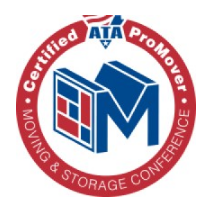Moving Cost: Guide & Moving Cost Estimation Tool
Moving can be an exciting yet daunting experience, especially when it comes to managing your budget. Accurately estimating your moving costs is crucial for ensuring a smooth and stress-free relocation.
Whether you’re planning a local move or a long-distance one, several factors can impact your overall expenses. From the size of your home and the distance you’re moving to the timing of your relocation and any additional services required, it’s essential to consider all aspects when calculating your moving costs.
We’ll explore the various factors that influence moving costs, provide average cost estimates for different home sizes, and compare the pros and cons of various moving options. Additionally, we’ll share practical tips to help you reduce your moving expenses and answer some frequently asked questions about moving costs.
Understanding The Factors That Impact Moving Costs

Several key factors can significantly influence the total cost of your move. By understanding these elements, you can better estimate your expenses and plan accordingly.
Distance Of The Move
The distance between your current home and your new destination plays a crucial role in determining your moving costs. Moves are typically categorized as either local or long-distance, each with its own set of considerations and pricing structures that determine how much is a moving service.
Local Moves
Local moves generally refer to relocations within the same city or metropolitan area, typically within a 50-mile radius. These moves are often priced based on an hourly rate, which includes the cost of labor, transportation, and any necessary equipment.
The total cost will depend on the number of movers required and the time it takes to complete the job.
Long-Distance Moves
Long-distance moves, also known as interstate or cross-country moves, involve relocating to a new city, state, or even across the country. These moves are typically more complex and expensive than local moves.
Long-distance moving companies often charge based on the weight of your belongings and the distance traveled. It’s essential to obtain accurate quotes from reputable long distance moving service providers to ensure you have a clear understanding of the costs involved.
Size And Weight Of Your Belongings
The amount and weight of your possessions directly impact your moving costs. The more items you have, the more labor, time, and resources will be required to transport them safely to your new home.
Moving companies will often provide an estimate based on the number of rooms in your current home or by conducting an in-home survey to assess the volume and weight of your belongings.
Timing Of Your Move
The timing of your move can also affect your overall costs. Prices for moving services can vary depending on the season and day of the week you choose to relocate.
Peak Season Vs. Off-Season
The summer months (May through September) are considered peak season for the moving industry. During this time, demand for moving services is high, which can result in increased prices and limited availability.
If your moving dates are flexible, consider scheduling your move during the off-season (October through April) to potentially save money and secure your preferred moving company.
Weekdays Vs. Weekends
Moving on weekdays (Monday through Thursday) is generally less expensive than moving on weekends (Friday through Sunday). This is because demand for moving services is typically higher on weekends, as many people prefer to move during their time off work.
If possible, consider scheduling your move on a weekday to potentially reduce costs and increase the likelihood of securing your desired moving date.
Additional Services Required
When how to prepare for a move, consider any additional services you may need beyond the basic transportation of your belongings. These services can add to your overall moving costs but may be necessary for a smooth and stress-free experience.
Packing And Unpacking
If you prefer not to handle the packing and unpacking process yourself, many moving companies offer these services for an additional fee. Professional packers can efficiently and securely pack your belongings, ensuring their safety during transit.
They can also unpack and help you settle into your new home more quickly.
Loading And Unloading
Most moving companies include loading and unloading services in their standard rates. However, if you have particularly heavy, bulky, or fragile items that require special handling, additional fees may apply.
Be sure to discuss any unique requirements with your moving company in advance to avoid unexpected costs.
Storage Solutions
If you need to store some of your belongings before, during, or after your move, many moving companies offer storage solutions. These can range from short-term storage during the moving process to long-term storage for items you don’t immediately need in your new home.
Storage costs will vary depending on the amount of space required and the duration of storage.
Insurance Coverage
While most moving companies provide basic liability coverage, it may not be sufficient to fully protect your belongings in case of damage or loss. Consider purchasing additional insurance coverage, such as full value protection, to ensure your possessions are adequately covered during the move.
The cost of this extra coverage will depend on the value of your items and the level of protection you choose.
Estimating The Cost Of Your Move
Understanding the various factors that can impact moving costs is crucial for estimating the expenses for your specific situation. Let’s explore the average moving costs for different home sizes and provide guidance on calculating your personalized moving estimate.
Average Moving Costs For Different Home Sizes
The size of your home is one of the most significant determinants of your moving costs. Larger homes typically have more belongings, requiring more time, labor, and resources to move.
Studio Apartment
Moving a studio apartment locally can cost anywhere from $300 to $600. A long-distance move can range from $900 to $2,500, depending on the distance and additional services required.
One-Bedroom Home
For a one-bedroom home, local moving costs typically fall between $400 and $800. Long-distance moves can cost $1,500 to $3,500.
Two-Bedroom Home
The average cost of moving company services for a two-bedroom home ranges from $600 to $1,200 for local moves. Long-distance relocations can cost $2,000 to $5,000.
Three-Bedroom Home
Moving a three-bedroom home locally can cost between $900 and $1,800. Long-distance moves can range from $3,000 to $7,500.
Four-Bedroom Home And Larger
For homes with four or more bedrooms, local moving costs can exceed $1,500. Long-distance moves can surpass $8,000, depending on the specific requirements and additional services needed.
Keep in mind that these are general estimates, and your actual moving costs may vary based on factors such as the distance of your move, the weight of your belongings, and any additional services you require. Obtaining personalized quotes from reputable home moving service providers is essential to get a more accurate estimate for your specific situation.
Calculating Your Moving Costs
To determine your moving expenses more precisely, consider the following steps:
Obtaining Quotes From Moving Companies
Reach out to several reputable moving companies and request detailed quotes based on your specific requirements. Provide them with accurate information about your home size, the distance of your move, and any additional services you may need.
Compare the quotes and services offered to find the best value for your needs and budget.
Using Online Moving Cost Calculators
Many moving companies and industry websites offer online moving cost calculators to help you estimate your expenses. These tools typically require you to input information such as your current location, destination, home size, and desired moving date.
While these calculators can provide a rough estimate, they may not account for all the unique factors that can impact your moving costs.
Factoring In Additional Expenses
When calculating your moving costs, don’t forget to account for additional expenses beyond the basic transportation of your belongings. These may include:
- Packing materials and supplies
- Insurance coverage for your possessions
- Storage solutions, if needed
- Specialty item handling (e.g., pianos, artwork, or fragile items)
- Gratuities for moving crew
- Travel and accommodation costs, if applicable
By considering these additional expenses, you can create a more comprehensive and accurate moving budget. This minimizes the risk of unexpected costs during the relocation process.
Comparing Different Moving Options And Their Costs
When planning your move, it’s essential to consider the various moving options available and their associated costs. Each option comes with its own set of advantages and disadvantages, as well as different price points.
Full-Service Moving Companies
Full-service moving companies provide end-to-end moving services, including packing, loading, transportation, unloading, and unpacking. They offer a convenient and stress-free experience with professional handling of belongings and liability coverage.
Pros And Cons
Pros:
- Convenient and stress-free
- Professional handling of belongings
- Liability coverage and insurance options
Cons:
- Most expensive option
- Less control over the moving process
- Potential for scheduling inflexibility
Average Costs
Full-service moving costs vary based on factors such as home size, distance, and additional services required.
- Local moves: $500 to $1,500
- Long-distance moves: $2,000 to $8,000+
Rental Trucks And Self-Moving
Renting a moving truck and handling the move yourself can be a cost-effective alternative to full-service moving companies. It offers flexibility in scheduling and complete control over the moving process.
Pros And Cons
Pros:
- Most affordable option
- Flexibility in scheduling
- Complete control over the moving process
Cons:
- Requires significant time and effort
- Potential for damage to belongings
- Liability for driving the rental truck
Average Costs
Rental truck costs depend on the truck size, rental duration, and distance.
- Local moves: $100 to $500
- Long-distance moves: $500 to $2,000+
Remember to factor in additional costs such as fuel, packing materials, and insurance.
Portable Storage Containers
Portable storage containers, such as PODS or U-Pack, offer a flexible moving solution where a container is delivered to your home for loading and then transported to your new location. They provide flexibility in loading and unloading times and storage options.
Pros And Cons
Pros:
- Flexibility in loading and unloading times
- Storage options available
- Reduced liability for driving
Cons:
- More expensive than self-moving
- Requires self-packing and loading
- Limited container sizes available
Average Costs
Portable storage container costs vary based on container size, distance, and rental duration.
- Local moves: $500 to $1,500
- Long-distance moves: $1,500 to $5,000+
Hybrid Moving Services
Hybrid moving services combine elements of full-service moving and self-moving, offering a balance between convenience and cost-effectiveness. They provide professional assistance with loading and unloading while allowing flexibility in packing and transportation.
Pros And Cons
Pros:
- More affordable than full-service moving
- Professional assistance with loading and unloading
- Flexibility in packing and transportation
Cons:
- Requires some self-packing
- Potential for scheduling limitations
- Less comprehensive than full-service moving
Average Costs
Hybrid moving service costs fall between self-moving and full-service moving options.
- Local moves: $300 to $1,000
- Long-distance moves: $1,500 to $6,000+
When comparing moving options, consider your budget, time constraints, and the level of assistance you require. By weighing the pros and cons of each option and their associated costs, you can make an informed decision that best suits your needs and resources.
Tips For Reducing Your Moving Expenses
Moving can be an expensive endeavor, but there are several strategies you can employ to minimize your costs. By being proactive and planning ahead, you can save money on your move without compromising the safety of your belongings or your overall moving experience.
Declutter And Downsize Before Moving
Before you start packing, take the time to declutter your home and get rid of items you no longer need or use. Sell, donate, or dispose of unnecessary belongings to reduce the volume of items you need to move.
This will not only save you money on packing materials and transportation costs but also make the packing process more manageable.
Pack Your Belongings Yourself
While full-service moving companies offer packing services, you can save a significant amount of money by packing your belongings yourself. Start collecting boxes, packing paper, and other materials well in advance, and pack non-essential items gradually to avoid feeling overwhelmed.
Choose An Off-Peak Moving Date
Moving during peak seasons, such as summers and weekends, can be more expensive due to high demand. If possible, schedule your move during off-peak times, such as mid-week or during the winter months, to secure lower rates from moving companies and rental truck providers.
Compare Quotes From Multiple Moving Companies
Don’t settle for the first moving company you find. Request quotes from multiple reputable moving companies and compare their prices, services, and customer reviews.
Be cautious of companies offering significantly lower prices, as they may have hidden fees or provide subpar services.
Utilize Free Or Recycled Packing Materials
Instead of purchasing new packing materials, look for free or recycled options. Ask friends, family, or local businesses if they have any spare boxes or packing supplies.
You can also use household items like towels, blankets, and clothing to wrap fragile items and fill empty spaces in boxes.
Enlist Help From Friends And Family
Reach out to friends and family members for assistance with packing, loading, and unloading. Not only will this help you save money on labor costs, but it can also make the moving process more enjoyable and less stressful.
Be sure to express your gratitude by providing meals, snacks, and refreshments during the move.
Plan Ahead To Avoid Last-Minute Expenses
Last-minute moving arrangements often come with higher costs and limited options. Start planning your move well in advance to avoid unnecessary expenses.
Book your moving company or rental truck early, arrange for utility disconnections and new connections, and create a detailed moving checklist to ensure you don’t forget any essential tasks.
Frequently Asked Questions
- What is the average cost of moving a 2-3 bedroom household locally?
The average cost of moving a 2-3 bedroom household within the same city is approximately $2,300. However, the actual cost may vary based on factors such as the specific location, distance, and additional services required.
- How much does it typically cost to move a 2-3 bedroom home long-distance (1,000+ miles)?
Moving a 2-3 bedroom home long-distance (1,000+ miles) typically costs around $4,300. The actual cost can be influenced by factors such as the exact distance, weight of belongings, packing services, and the type of mover you choose.
- Are moving costs tax-deductible?
In most cases, moving costs are not tax-deductible. However, if you are moving due to a change in your job or business location, you may be eligible to deduct certain moving expenses, and it’s best to consult with a tax professional to determine if your moving costs qualify for a deduction.
- How can I ensure I’m getting an accurate moving cost estimate?
To ensure you receive an accurate moving cost estimate, provide the moving company with as much detail as possible about your move, including the number and size of rooms, any large or specialty items, the distance between your current and new home, and any additional services you require. It’s also a good idea to get estimates from multiple moving companies and compare them to ensure you’re getting a fair price.
- What additional expenses should I budget for when planning my move?
When planning your move, it’s essential to budget for additional expenses beyond the basic moving costs, such as packing materials, storage solutions, utility disconnections and new connections, cleaning services, and any potential repairs or renovations needed in your new home. Factoring in these additional costs will help you create a more accurate and comprehensive moving budget.
Conclusion
Moving costs can vary significantly based on several key factors, including the distance of the move, the size and weight of your belongings, the timing of your relocation, and any additional services required. By understanding these factors and carefully planning your budget, you can minimize the financial stress associated with moving and ensure a smoother transition to your new home.
To create a personalized moving cost estimate, consider your unique circumstances and requirements. With a clear understanding of the costs involved and the various moving options available, you can make informed decisions that best fit your needs and budget.
Investing time in planning and budgeting for your move can lead to significant savings and a more enjoyable relocation experience. Take charge of your move, explore your options, and find the most cost-effective solution for your specific situation.






